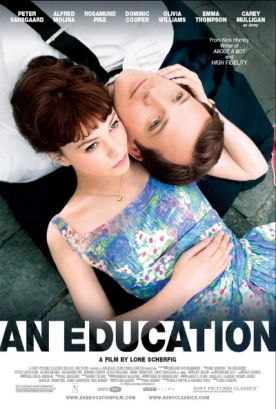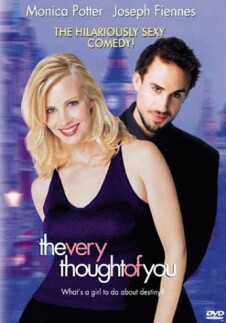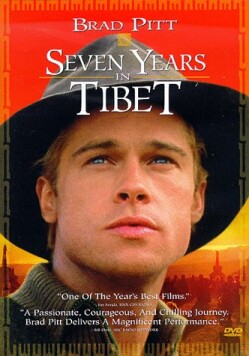Education, An
On the same day that An Education opened in the U.S., the Daily Mail of London reported on court testimony in the case of a missing schoolgirl, Tulay Goren, a 15 year-old Turkish-Kurdish refugee who disappeared in 1999. After ten years during which she kept quiet, fearing for her own safety, Tulay’s mother told the court that her husband, Tulay’s father Mehmet, together with his brothers Ali, and Cuma Goren, all Turkish refugees living in Woodford Green and Walthamstow, East London, had killed her and buried her in the garden. Later, the body had been moved, she knew not where. It has never been recovered. Later still, Mehmet had attempted to kill Tulay’s much older boyfriend, Halil Unal, now 41, with an axe. Tulay had been living with Halil and hoped to marry him, but she was too young. Her family wouldn’t have minded that so much, but Halil came from a different Islamic sect and so was an ineligible husband.
Even if she had married him, and even if he had been an acceptable husband to her family, the shame of her having left the family home to live with him would not have been expunged. In the words of the Mail’s report, “After losing her virginity Tulay was seen as a ‘valueless commodity’,” which is why, said Jonathan Laidlaw, QC, for the prosecution, “Tulay’s father was outraged and was filled with a sense that his reputation and that of his family had been destroyed.” I only mention this story because, in many parts of the world, this kind of “honor-killing” is quite common and has been for centuries. It is only because so many people from those parts of the world are now living in London and other Western cities that it has been forced upon our notice to the extent that it has.
Fifty years ago, at the time when An Education is set in a very different London from that of Tulay Goren, the memory of the Western honor culture — in which honor killings were not common — was still relatively fresh in people’s minds. This must have made them more sharply aware of the new, post-honor society that we now take for granted but that was then just coming into existence. At any rate, that social transformation is what the movie, directed by the Danish director, Lone Scherfig (Italian for Beginners), to a screenplay adapted by Nick Hornby from a memoir by Lynn Barber, is all about. Jenny (Carey Mulligan) is a bright school-girl preparing for Oxford entrance at a time when this was still fairly unusual for girls. Jenny divides her time between homework, practising the ‘cello and verbal fencing with her less well-educated but upwardly mobile father, Jack, (Alfred Molina), who is both protective of her and eager for her to succeed academically without himself really understanding what that means.
For instance, he thinks the ‘cello is a waste of time, a mere hobby. “You don’t have to practise a hobby,” he tells her. He thinks that spending all her time on homework is the way to get into Oxford — that and a little of the salesman’s art of gamesmanship. Jenny bears all his nagging and prodding and lecturing with a good humor. When, in one of his many and frequently offered bits of advice to her, papa mentions the inadvisability of looking like a rebel — since “they don’t want that at Oxford” — Jenny replies with bemusement: “They don’t want people who can think for themselves?”
“Of course they don’t,” says dad confidently.
One day, Jenny is coming home from orchestra practice in the rain, carrying her ‘cello with her, when a man in a sports car pulls up beside her and offers to give the ‘cello a lift. He knows that she wouldn’t get in a car with a stranger, but he is a music lover and aghast at the idea that the ‘cello might be damaged. She is charmed and soon gets into the car along with her instrument. The man’s name is David (Peter Saarsgard), and soon he is taking her to concerts in the West End — which is almost like a foreign country to her, though she lives in the same city — and promising expeditions even farther afield. That this sophisticated man of the world should so easily charm Jenny is, of course, not remarkable, but he is also able to charm Jenny’s mother (Cara Seymour) and father into allowing these expeditions in the belief that he himself is merely taking a fatherly interest in her career.
The results are predictable and, mercifully, less disastrous to Jenny’s education and subsequent life than they very easily might have been. Yet the poignancy of the underlying social changes as they were to affect the lives of women then growing up and the country as a whole as a result of new economic, demographic and cultural trends is summed up in Jack’s innocence, so much greater than that of his suddenly worldly-wise daughter, at the moment when he finds himself and his understanding of the world stranded by the withdrawing tide of white, middle-class British culture. Even Emma Thompson as the headmistress of Jenny’s girl’s school, with her not-so-subtle class prejudice and anti-Semitism, is a semi-sympathetic character on account of her forlorn stand on behalf of traditional standards and against the winds of change — because we know in advance that she has no hope of prevailing.
In a number of ways, this movie is like the AMC television series “Mad Men” which one critic, Mark Greif, has described as belonging to the emerging genre that he calls: “Now we know better.” The emotions that such artefacts produce in us are doubtless complex ones: a combination of nostalgia and regret, condescension and self-satisfaction that, well, now we know better. In the view of many, seemingly including Mr Greif, this emotion does not rise to the level of genuine aesthetic experience but is, rather, a form of self-indulgence. I’m not sure that I agree. Though I deplore the self-congratulation that seems to go along with it, I think there is in the sympathy with which we approach these old-timey — but not that old-timey — people with their quaint ideas about the world an implicit acknowledgment that they had something that we are the poorer for not having. This is an idea of morality that is not merely self-chosen and a kinder, gentler system of honor than that of Islam, according to which, even when they violated it, people could still judge the world and themselves. It may be an aesthetic experience at one remove, but it is not to be regarded with contempt merely for that reason.
Discover more from James Bowman
Subscribe to get the latest posts to your email.






